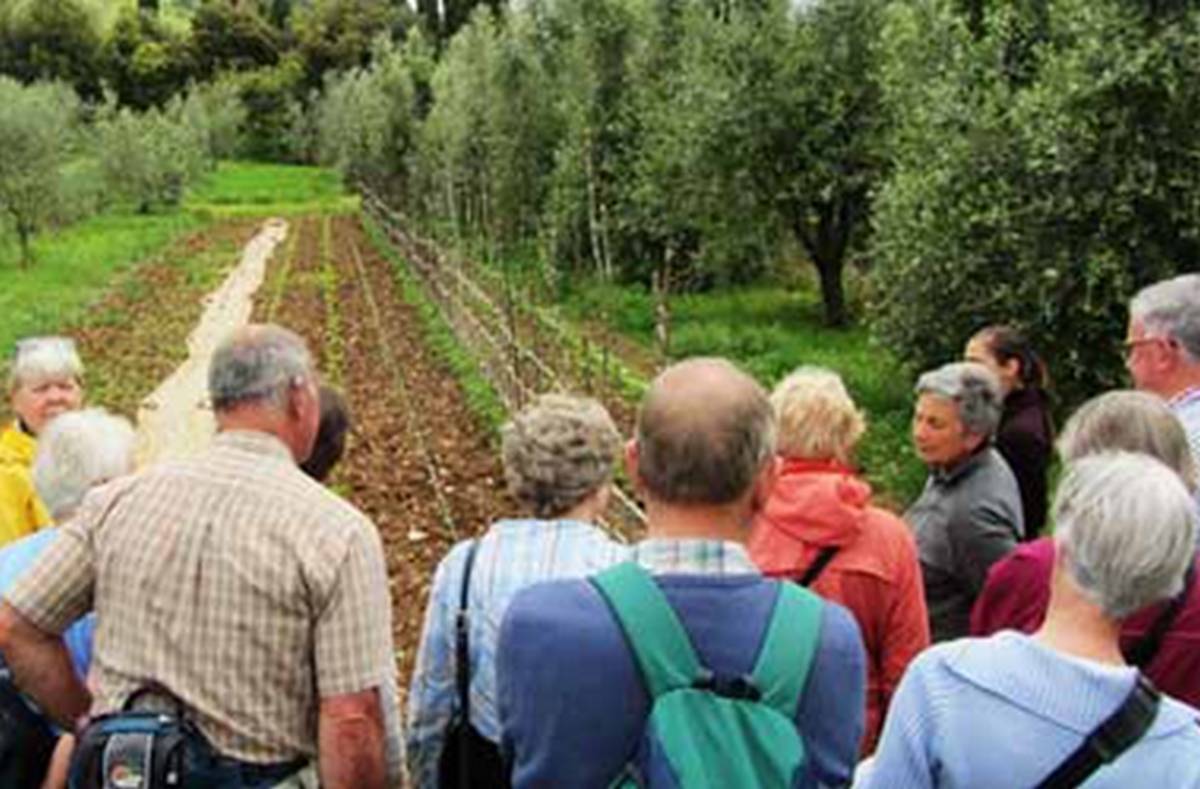
| Duration: | 30 hours |
| Cost / group: | 4.800 € |
| Cost / person: | 240 € |
| (max 20 persons) | |
Organization & Promotion of Agricultural Tourism
Agrotourism is the alternative form of tourism that develops in non-touristly saturated rural areas and is associated with social, environmental and cultural values that allow both hosts and guests of these areas to interact and share experiences. The training program concerns, trainings for local and regional public bodies (regional administrations, municipalities, regional development agencies, regional/local tourist organizations, information centers).
The training program will be divided into two parts:
- Tourism development of a region through cultural values
- Agrotourism
After completing the specific training program the participants will be able to:
- Know what we mean by "agrotourism".
- Describe the basic features of the agro-tourism product.
- Evaluate the role of agrotourism as a tool for f local development in rural areas.
- Discover the different forms of tourism that are part of rural tourism.
- Understand the main forms of agrotourism which are developed in developing countries.
- Learn the main reasons for the development of rural tourism.
- Be aware of the main categories of agritourism accommodations.
- Be aware of the different forms of agrotourism which are developed in Europe.
- Explain what we mean by "ecoculturism".
- Understand the goals of agrotouristic development in Greece.
- Describe the different services that can characterize an agrotourism product.
- Be aware of the different forms of agro-tourism businesses operating in Greece.
- Learn the different sources of funding for agro-tourism investments.
- Recognize the main trends that favor the development of rural tourism internationally.
- Describe the main features of agrotourists.
- Understand the basic problems related to the development of agrotourism.
Bellow you can see the content of the training program “Organization & Promotion of agricultural tourism”:
1) Tourism development of a region through cultural values- Analysis of the purpose of the seminar – commitment on the aim.
- Presentation of the Common Methodology for management of cultural values in rural areas
- Guidelines serving for identification of cultural values as a development factor,
- Guidelines serving for identification and participation of relevant stakeholders in the management of cultural values and
- Guidelines serving for preparation of action plans for cultural tourism destinations.
- Exchange of experience in management of cultural values in rural areas.
- Presentation of good practices
- Ways of transformation of good practices in local area
- Setup the Action Plan of an area
- Implementation of the Action Plan of an area
- Visits to see good practices in the wider region.
- The Conceptual Content of Agrotourism
- The Evolution of Rural Tourism
- Agrotourism: The Greek Experience
- The Market of Rural Tourism and the Characteristics of Agrotourist
- The problems of Agrotourism


